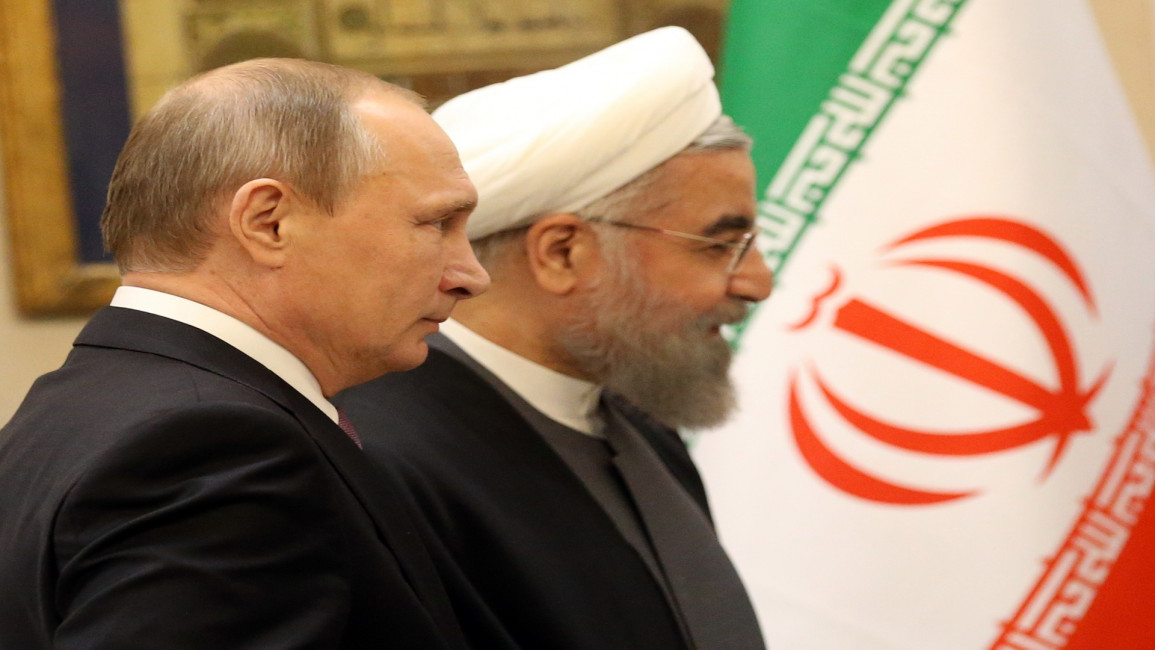Uranium deal fuels nuclear cooperation between Iran and Russia
Moscow will sell Tehran 140 tonnes of raw uranium and receive eight tonnes of enriched uranium in exchange, said Ali Akbar Salehi, the head of the Atomic Energy Organisation of Iran.
Iran had struck another agreement with Russia regarding the trade in nuclear fuel that will be announced in coming days, Salehi teased.
| Moscow and Tehran will also work in partnership to build two additional units at the Bushehr nuclear power plant |
"Moscow has promised to help Tehran continue its nuclear activity including the production of radionuclides," said Salehi.
"The production of these radionuclides that have medical uses requires special centrifuges," which will be developed with Russian help, Salehi added.
Moscow and Tehran will also work in partnership to build two additional units at the Bushehr nuclear power plant, in addition to securing Bushehr's fuel needs.
Meanwhile, the Iranian nuclear negotiating team headed by deputy foreign minister Abbas Araghchi met with officials from the International Atomic Energy Agency (IAEA) in Vienna on Tuesday to complete the joint plan of action that was agreed as part of Iran's nuclear agreement.
A number of disagreements still exist between the Iranian team and the IAEA, specifically the international organisation's suspicions of military tests being conducted as part of Iran's nuclear programme.
Iran and the IAEA has agreed to work on resolving their disagreements by the end of the year as part of the joint plan of action.
The joint committee between Iran and P5+1 countries that oversaw the nuclear agreement is scheduled to hold a meeting next week in Vienna to discuss the implementation of the deal reached in July, according to Fars News.
World powers are also helping Iran redesign the Arak heavy water reactor so it cannot produce weapons-grade plutonium, according to the state news agency IRNA.
The redesign will take three months, while its implementation could take more than a year, said a spokesman for the Atomic Energy Organisation of Iran.
Gas production bloc
Tehran also hosted the third summit of the Gas Exporting Countries Forum (GECF) on Monday, which included 12 countries holding 70 percent of the world's natural gas reserves.
The summit comes at a time when Iran is preparing to have international sanctions lifted in order for it to reenter the energy market, while Russia, Europe's largest gas provider, is attempting use its gas stocks to increase its political weight.
According to many observers, gas exporting countries are headed towards the formation of a bloc similar to the Organisation of Petroleum Exporting Countries (OPEC), with the move being spearheaded by Russia and Iran.
Russia and Iran have formed a political bloc due to their similar positions regarding a number of issues in the Middle East, which are likely to have additional economic knock-on effects, according to Iranian economic analyst Mohammad Hussein Saif-Ilahi.
Saif-Ilahi believes that such a bloc will allow Russia to influence the oil prices set by OPEC, in addition to allowing Iran to regain some of its oil market share after sanctions are lifted.



